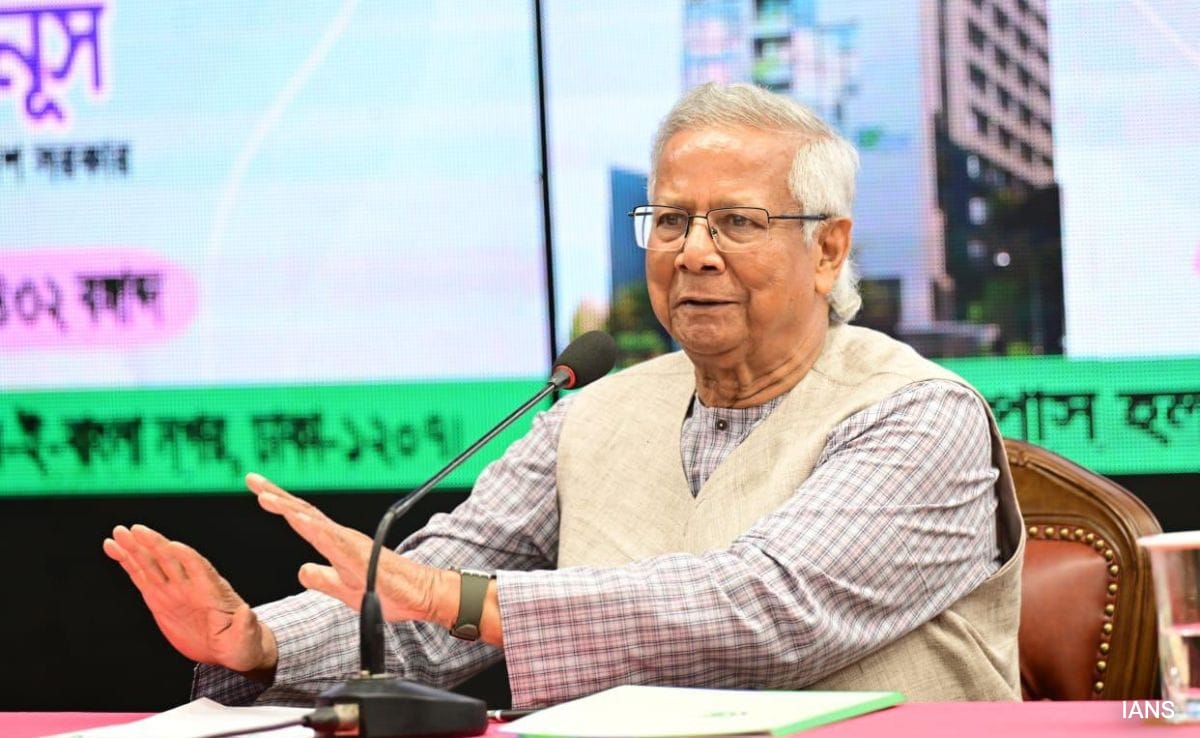Will Muhammad Yunus Defy Democratic Norms to Stay in Power?
In Bangladesh, the political landscape is witnessing a significant upheaval as Muhammad Yunus, the head of the interim government, seeks to prolong his rule for another five years without the traditional electoral process. Following a major political crisis last year that resulted in the ousting of Prime Minister Sheikh Hasina, the interim government was expected to pave the way for forthcoming elections. However, Yunus’s maneuvering has sparked widespread protests and criticism, pushing the nation toward an uncertain future.
The Nobel laureate and former microfinance pioneer assumed the role of Chief Adviser to the interim government shortly after Hasina’s exit. Recent reports indicate that Yunus’s supporters are fervently rallying in Dhaka, demanding that reforms be prioritized before any elections are conducted. Capital city Dhaka is adorned with posters declaring “reforms first, elections later” and calling for “Yunus to remain in power for five years.” These developments raise critical questions about the integrity of Bangladesh’s democratic processes and the potential implications of Yunus’s extended rule.
At the heart of the ongoing turmoil is a proposed Rohingya Corridor, primarily aimed at providing assistance and support to the Rohingya refugee crisis that has plagued the region. Critics assert that Yunus is leveraging this issue to consolidate power while being influenced by external forces, primarily the United States. The proposed corridor has met with strong opposition from military officials who insist that territorial matters should be decided solely by an elected government.
The Tension Escalates: Military Push for Elections
The political standoff is further complicated by Yunus’s reported threats to resign in the face of mounting backlash against the Rohingya Corridor proposal. Critics have pointed fingers at him, labeling his actions as an extension of U.S. influence over Bangladeshi soil. Yunus’s meeting with Nahid Islam, the head of the National Citizens’ Party (NCP) and a prominent figure in the interim government, is seen as a strategic maneuver to rally support amid growing pressure for his resignation. As per the reports this meeting is crucial in understanding Yunus’s political calculus.
Adding to the tensions is the stance of the Bangladesh Army, with Army Chief General Waker-Uz-Zaman asserting that a democratically elected government should address issues of sovereignty and territorial integrity regarding the Rohingya Corridor. His dismissive remarks about the corridor being a “bloody corridor” underscore the military’s serious concerns over Yunus’s plans. The army has been vocal about the necessity for elections to take place by December, complicating Yunus’s ambitions for extending his rule.
The opposition, led by the Bangladesh Nationalist Party (BNP) and spearheaded by Sheikh Hasina’s political rival Khaleda Zia, has remained relatively neutral but has called for elections by the deadline, emphasizing that the interim government’s role was never meant to be permanent. This neutral position raises further questions about the future political landscape in Bangladesh and the potential for widespread protests if Yunus attempts to cling to power beyond the established timeline.
Protests Erupt in Dhaka
Rallies have erupted in Dhaka as supporters of Yunus mobilize under banners calling for sustained reforms and the retention of Yunus in power for an extended term. The movement, named “March For Yunus,” aims to showcase public support for the embattled leader while attempting to placate the critics calling for immediate elections. However, the growing unrest demonstrates a fracture within the populace, with many Bangladeshi citizens growing weary of the ongoing political instability and the potential loss of democratic freedoms.
Yunus’s critics have become increasingly vocal, accusing him of colluding with Islamic hardliners who are allegedly using campus movements as a proxy to assert their influence. This accusation has created a rift in student organizations across the country, further igniting tensions among the youth and deeper societal divides.
As the political situation escalates, news outlets such as BBC News and The Guardian have reported on the critical need for a more representative government in Bangladesh, emphasizing the urgency for reform and the restoration of democratic processes.
The Future of Bangladesh’s Governance
With the pressure mounting from both military officials and opposition parties for imminent elections, Yunus faces a ticking clock. The ongoing discord surrounding the Rohingya Corridor and the military’s insistence on a return to democracy poses a significant challenge to his ambitions. Critics suggest that Yunus’s attempts to extend his tenure could lead to a further spiral of unrest if not managed carefully.
In light of these developments, the international community watches closely—the implications of Yunus’s decisions could reverberate throughout Southeast Asia, affecting not just Bangladesh, but also neighboring countries grappling with similar political challenges. As the situation unfolds, it is clear that Bangladesh stands at a crossroads where the future of its democracy may hang in the balance.
In the coming weeks and months, the actions taken by Yunus will determine whether Bangladesh will transition back to a legitimate governing body or continue down a path of political instability and unrest. The calls for elections grow louder, and only time will tell if Yunus can navigate this turbulent political environment while adhering to democratic principles.
As the nation braces for what could be historic changes, the stakes have never been higher for the people of Bangladesh.
DISCLAIMER
We have taken every measure to ensure that the information in this article and on our social media platforms is accurate, verified, and obtained from reliable sources. For feedback or complaints, please contact us at info@hamslive.com.


